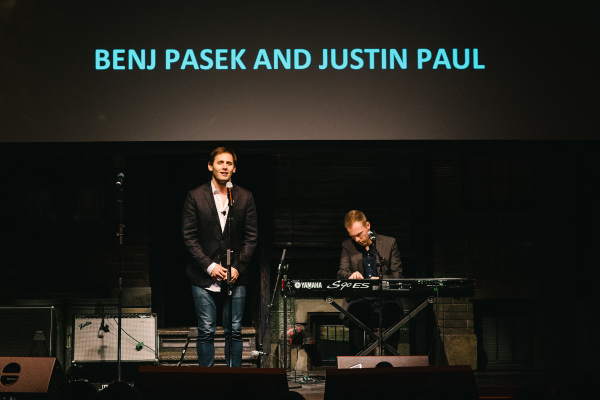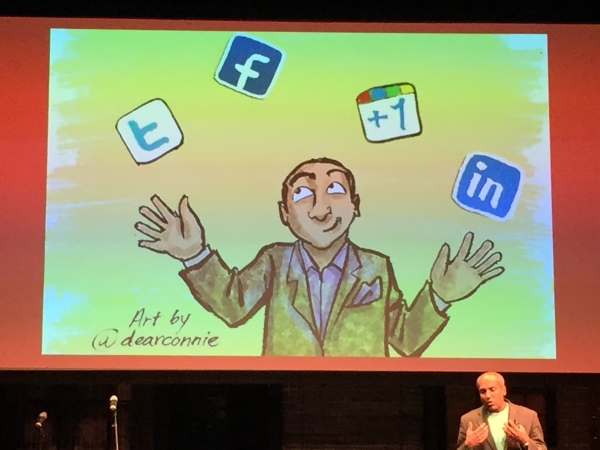TEDxBroadway Roundup: Is Broadway What Sets Us Apart From the Apes?
Our evolutionary roots may be the thing that keeps the theater from going extinct.

(© Glen DiCrocco)
For the past four years, TEDxBroadway has been hosting collections of speakers who try to answer the question: How can we make Broadway the best it can be? Last year, technology was by far the most common response. In a gamified world of social media and instant gratification, the experts reached an unspoken consensus that a technological upgrade to Broadway's antiquated system was the only way to capture an audience's (extremely limited) attention.
Perhaps a conscious shift by TEDxBroadway organizers Jim McCarthy and Damian Bazadona, this year's event, held at New World Stages, offered a reactionary response to last year's tech-heavy roster. The program still opened on a technological foot, with "big data" expert and Broadway producer Elliot Masie positing different theater-related apps that will help "delight customers" by harnessing the power of their instant feedback. His upcoming Broadway Hackathon will offer tech-savvy college students the chance to brainstorm and implement some of these ideas.
Immediately following Masie, however, was an eloquent speech by playwright Ayad Akhtar (currently represented on Broadway by his Pulitzer Prize-winning drama Disgraced) that soothed our collective concern about the theater's place on the endangered-species list. Harking back to the shadows on the walls of Plato's cave and Aristotle's theory of dramatic catharsis, he described the theater as an archaic yet inextinguishable form, which — though constantly threatened — remains a part of our innate human nature.
Yale Psychology Professor Dr. Laurie Santos reinforced this sentiment from an evolutionary angle. She cited the principle of "mental contagion" — the uniquely human ability to adopt the thoughts of another — as one of the few things that separates us from our furry primate cousins. While it's a trait that may, in fact, drag our capacity for logical action below that of an ape, it may also be the key to our enjoyment of the theatrical experience.

It's certainly not thrilling to hear that we may be collectively dumber than monkeys, but Santos and Akhtar put theater back in its rightful context as an essential desire of our human experience — not a medicine to be made more tolerable for a generation of disinterested cellphone junkies.
The productive benefits of the Internet age were on full display as well, as Tony-nominated songwriters Benj Pasek and Justin Paul described the community of YouTube artists among whom they launched their rapidly growing careers. Twitter celebrity @BroadwayGirlNYC (whose true identity as Laura Heywood was revealed at the TEDx conference) similarly explained the broad community social media has allowed her to reach. With over 21,000 followers to her name, a slice of the Broadway experience is able to make contact with individuals who otherwise would never have any exposure at all to this East Coast microcosm.
In the spirit of community expansion, diversity was another hot topic of the day's proceedings. Palestinian actor Osh Ghanimah, who founded the educational nonprofit Broadway for All, served as an advocate for his minority students who beg for the opportunity to play the traditionally white characters from the classic musical-theater archives — even offering one of his young protégés named Precious to bring her Reno Sweeney to the stage with a rendition of "Blow, Gabriel, Blow." African-American comedian Phoebe Robinson, meanwhile, pleaded for casting directors to open the field of "all-American" characters to actresses of other races. Unmistakably, the change of heart and mind required to realize this level of collective change poses a far greater challenge than any technological goals we may set for ourselves. But in a year that has seen both an African-American Phantom and a Latino Alexander Hamilton, Broadway's best might be right around the corner.







